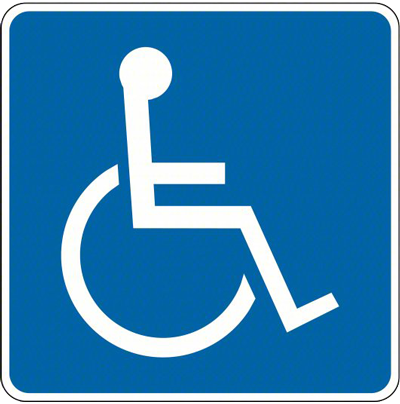
Handicapped parking spaces are usually thought of for those with mobility, respiratory, or low vision issues — people who have trouble standing or walking and need to be close to the entrance, those who have trouble breathing after periods of exertion, and those who have difficulty seeing. Many people with environmental illness (EI) have a range of reactions when exposed to triggers, including respiratory distress, cognitive dysfunction, paralysis, vision disturbances, and muscle pain/spasms. In addition, walking through a crowded, active parking lot can feel much like walking through a Cambodian field full of old landmines. Being able to park close to the store you are visiting can help you avoid exposure to various triggers such as perfume and smoke in the air. In addition, people with multiple chemical sensitivity (MCS) may have co-morbidity, with several other serious health conditions. If you feel you need a handicapped parking permit, you should discuss this with your doctor and apply for a permit through the Department of Transportation in your state. Usually you can get the form by going into their office, or online. Your physician may also have the form available in their office and can help you apply. They will need to sign the form to attest that you are disabled and in need of the permit. You can also opt to get a handicapped license plate.
I recently applied for a handicapped parking permit, myself. I live in Arizona. Each state has its own protocol for applying, though they are largely similar to each other. You will need to look up the particulars for your state. In my case, I spoke to my doctor and explained why I was requesting a permit. I have been dealing with chronic severe iron deficiency anemia and muscle tone loss from Crohn’s disease. I also have rheumatoid arthritis, currently affecting the soles of my feet. It has been very difficult, and sometimes painful, for me to walk distances and almost impossible to go up stairs. For me, it is a mobility issue. I also get very fatigued from any kind of exertion. My doctor agreed and had the form in her office. She filled out her part and then I filled out my part of the form. The office faxed the completed form to ADOT (Arizona Department of Transportation). It was that easy. I received my handicapped parking permit within a week, via mail.
Years ago when I first became severely chemically sensitive, I got a handicapped parking permit because I needed to avoid exposures in the parking lot. I had no one to help me with every day chores like food shopping, so I had to do my shopping myself. I would get so sick even before reaching the store and it made life much more difficult for me. A handicapped parking permit was a very much appreciated tool for helping me avoid bad exposures.
If you are interested in applying for a handicapped parking permit or license plate yourself, you can go to your state’s Department of Transportation website, or do a search on Google or other search engine with the keywords “how to apply for a [YOUR STATE] handicapped parking permit.” Make sure you click on a reputable source for the information. Speak with your doctor about it and see if they can help you submit the form. It should be a relatively smooth process and you will have your permit in just a couple weeks.







0 Comments